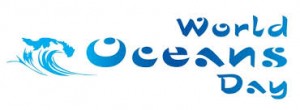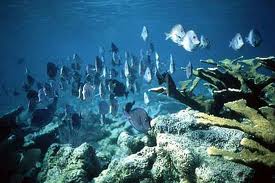World Oceans Day: The Need for Outside the Box Thinking to Protect Global Oceans
Jun 7th, 2013 | By admin | Category: Environment/SustainabilityBy Suzanne York, www.howmany.org
World Oceans Day is June 8th, designated to raise global awareness on the state of oceans and the current challenges faced by the international community in connection with the oceans. Given increasing global problems – especially climate change – the urgency of protecting oceans is imperative.
Our Vital Oceans
A few statistics on oceans to bear in mind:
- The ocean covers 71 percent of the Earth’s surface and contains 97 percent of the planet’s water, yet more than 95 percent of the underwater world remains unexplored;
- The United Nations Food and Agricultural Organization estimates that eighty-five percent of marine fish stocks are either fully exploited or overfished;
- Commercial fish and seafood species may collapse by 2048.
The UN Global Biodiversity Outlook 2010 warned that unless “radical and creative action” is taken quickly, the oceans will crash. The major threats to oceans are climate change (ocean acidification), over-fishing (especially via industrial trawlers), pollution, and deep-sea mining.
Time for a Paradigm ShiftWhile some people are aware of the pressure on oceans, many are not. Thus the reason for a day dedicated to oceans. But do these designated days make a difference? World Environment Day was just celebrated a few days ago, and there are countless similar days dedicated to any number of pressing issues. But the special days come and go, with little change.
Real change requires outside the box thinking. There are three concepts that should be considered to truly protect not only oceans, but also the entire ecosystem and the people that depend upon it.
1) Rights of Nature: acknowledges that nature in all its life forms has the right to exist, persist, maintain and regenerate its vital cycles. Under this thinking, nature is not viewed as property or something to be exploited by humans. People have the legal authority to enforce these rights on behalf of ecosystems. Ecuador and Bolivia have rights of nature incorporated in state constitutions.
2) Empower Women: small-scale fisheries provide a source of food and income for hundreds of millions of people, and women do much of the work. Women represent 47% of the fisheries workforce, often in low-income and informal roles. Economically empowering women with sustainable livelihoods (such as loans to start businesses) and addressing gender inequality is imperative. In doing so, food security is improved and the cycle of poverty and natural resource degradation is broken.
3) Rethinking the Global Economy: the global economic system is predicated on endless growth, an unsustainable pattern that is exploiting resources – many from the ocean – around the world. Changing this system, beginning with ending the use of Gross Domestic Product as the main indicator of progress (which measures the good and the bad), is a start. Moving closer to a steady-state economy is another step to consider.
Words of Wisdom
Jacques-Yves Cousteau, a man closely connected in the public’s eye with protecting oceans, once said that “For most of history, man has had to fight nature to survive; in this century, he is beginning to realize that, in order to survive, he must protect it.”
Cousteau dedicated his life to oceans. The threats that existed in his lifetime are even worse today; despite all of human knowledge, ability, and technology, we are pushing oceans to the point of no return.
The time has come for new thinking. The oceans can’t wait much longer.
Suzanne York is a senior writer with the Institute for Population Studies.



